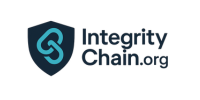IP Theft and Misuse in Startups: The Hidden Risk That Can Cripple Innovation

In the startup world, intellectual property (IP) is often the most valuable asset — your codebase, algorithms, brand identity, product designs, trade secrets, or even customer databases. But what happens when that IP is misused, stolen, or leaked?
Whether it’s a departing employee walking away with proprietary source code, a co-founder misappropriating jointly developed tech, or a partner reselling your solution under a different name, IP theft is more common than most startups realize, and whistleblowers are often the first to detect it.
Founders and leadership teams need to understand how these incidents arise, what risks they pose, and how to foster a culture and system that protects their intellectual edge.
What Is IP Theft and Misuse?
IP theft in startups can take several forms:
- Ex-employees or founders using proprietary code, models, or data to build a competitor or join one
- Unlicensed use of third-party software embedded into your product
- Startups reselling open-source tech under a closed-source license, breaching terms
- Contractors or interns leaking code or training data
- Failure to properly assign IP ownership from contractors or advisors
IP misuse, on the other hand, refers to using stolen, unlicensed, or unassigned intellectual property to attract investment, enter partnerships, or build a product, knowingly or unknowingly.
Why Startups Are Especially Exposed
Startups often treat IP like oxygen — it’s everywhere, assumed to be secure, and rarely documented clearly. But that mindset can backfire.
Key reasons IP misuse occurs in startups:
- No formal contracts or IP assignment clauses with employees, freelancers, or advisors
- Shared GitHub or cloud access without restrictions
- Fast product iterations where devs copy-paste code from Stack Overflow, GitHub, or competitors
- Rushed due diligence during fundraising or acquisitions
- Founders are not protecting their early work with patents, NDAs, or copyrights
As you grow and raise funding, any misuse of IP — even accidental — becomes a significant liability. And if it’s deliberate, it can lead to lawsuits, blocked acquisitions, or criminal charges.
The Whistleblower’s Role in IP Disputes
Whistleblowers often come from within:
- A junior developer sees proprietary code copied from a former employer
- A project manager flags that a consultant never signed an IP transfer agreement
- A co-founder raises concerns when reused models or datasets are presented as proprietary
- A partner notices your product mimics another tool too closely
In high-growth environments, red flags can often be ignored until someone speaks up or the injured party takes legal action.
Real-World Startup Examples
- A Series A health tech startup used medical data without proper anonymization or licensing, leading to HIPAA scrutiny and a $1.5 million settlement.
- A founding engineer left with the core backend architecture and launched a rival platform. The IP assignment clause was vague and unenforceable.
- A fast-scaling SaaS platform utilized open-source code with GPL licenses in a proprietary product, violating license terms and resulting in an investor pullout.
- In a 2024 whistleblower complaint, a marketing tech startup allegedly used a competitor’s leaked sales database, prompting an investigation by the FTC.
Risks for Founders and Executives
- Legal battles with former employees, partners, or competitors
- Deal collapses during funding, M&A, or audits due to IP questions
- Loss of investor trust if proprietary claims turn out to be misrepresented
- SEC or FTC scrutiny if IP was tied to financial disclosures or growth promises
- Reputational damage that deters hires, partnerships, or clients
Startups that play fast and loose with IP often pay later, in courtrooms or crisis PR.
How to Protect Your Startup’s IP
- Ensure proper IP assignment agreements
Everyone involved—employees, freelancers, advisors—should sign documents that assign any work they create to the company. - Restrict and monitor access.
Utilize version control, access logs, and role-based permissions on tools such as GitHub, Notion, or Google Drive. - Conduct periodic IP audits.
Review your tech stack, data sources, and contracts on a regular basis. Verify licenses and check for copied or misused code. - Train your team
Most IP misuse comes from ignorance, not malice. Educate your team on various license types (e.g., MIT, GPL, Apache), NDA obligations, and data usage policies. - Establish clear policies for ex-employees
Disable access promptly. Monitor for IP misuse after departure, especially if they join competitors. - Take whistleblowers seriously
If someone raises a concern about stolen, copied, or misused IP, investigate immediately. Don’t shoot the messenger.
What to Do If IP Theft Is Discovered
- Consult legal counsel and your board
- Document everything — logs, emails, code changes, employee contracts
- Notify affected parties (clients, partners, investors) if necessary
- Take corrective action — remove stolen elements, update disclosures, renegotiate licenses
- Discipline or terminate the involved parties, following due process
- Update systems to prevent recurrence
Your response shows how seriously your company takes integrity and innovation. Transparency goes further than silence.
Final Thoughts
Startups are built on ideas. But ideas only become assets when they’re protected. In a world where innovation is fast and oversight is slow, whistleblowers play a crucial role in keeping companies honest.
For founders, taking IP seriously isn’t just about compliance — it’s about credibility. The next time a deal’s on the table or a major client is watching, you want to know every line of code, every model, and every pitch deck is genuinely yours.



